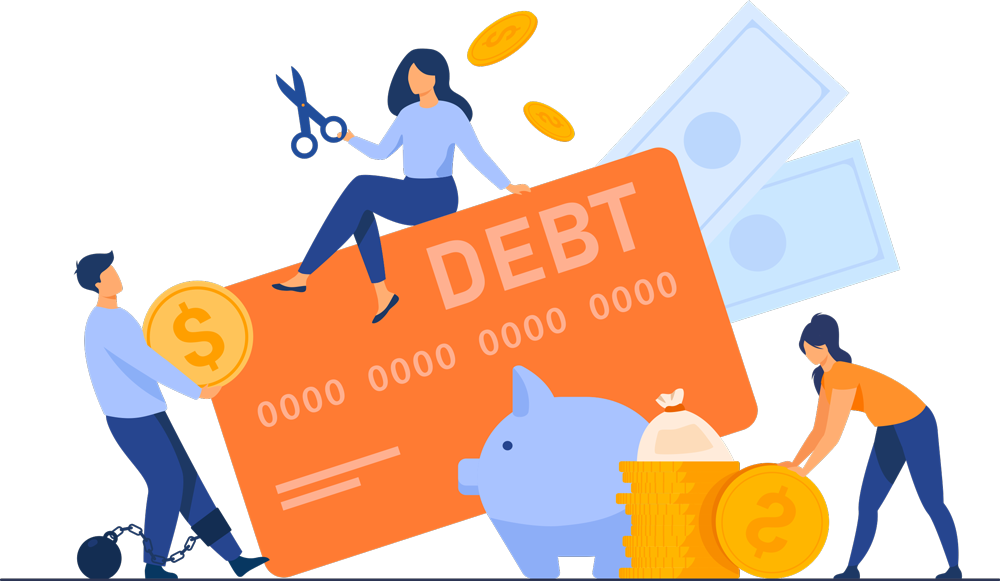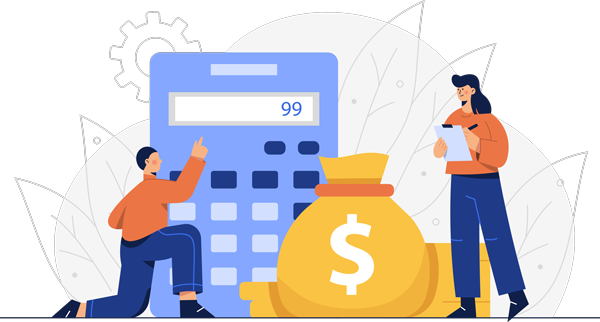Providing
Bankruptcy assistance since 2005
The Valenzuela Law Firm sincerely strives to provide thorough and knowledgeable representation for our clients. We are local. We live and work in the Ozark, Alabama / Dothan Alabama area. We are a small firm, which allows us to form lasting relationships with our clients.
Restructure or consolidate your mounting debt
Bankruptcy
If you have been considering bankruptcy and do not know whether bankruptcy is the right solution for you, The Valenzuela Law Firm can help you make the right decision for you and your family. By filing either a Chapter 7 or Chapter 13 bankruptcy, we can stop the harassing phone calls, the collection attempts, the law suits, the garnishments, the foreclosures, the repossessions, and the levies on your tax returns. We are the buffer between you and your creditors. Bankruptcy can be the right solution to get your financial life back on track.
Let us advise you on whether to file for Chapter 7 or Chapter 13
- Chapter 7 bankruptcy is known as a “liquidation bankruptcy” and can eliminate unsecured debts (i.e. credit cards, medical bills).
- Chapter 13 bankruptcy is designed to help you pay your debt back over a timespan of a few years with monthly payments.
- To qualify for Chapter 7 bankruptcy, your average monthly income must be equal to or less than your state’s median income.
- Filing for Chapter 13 bankruptcy can help you keep your assets. Many homeowners use this option to stop a foreclosure.
- Chapter 13 bankruptcy is a better option if most of your debt is not dischargeable (i.e., tax debts, student loans).
Call us now for your free
Bankruptcy consultation!
File for the Bankruptcy Chapter That’s Right for You
In a Chapter 7 bankruptcy, a debtor can keep certain property up to the exemption limits. However, liens such as mortgages, car loans and other security interests, will survive, with a few exceptions. The value of property that can be claimed as exempt varies from state to state. Any unexempt assets, if any, must be sold by the trustee to the benefit of creditors. Generally, unsecured debt is legally discharged by the bankruptcy. Usually, exceptions to discharge include child support, income taxes less than 4 years old, property taxes, student loans, and fines and restitution imposed by a court for any crimes committed by the debtor. Spousal support is likewise not covered by a bankruptcy filing nor are property settlements through divorce. Regardless of potential non-dischargeability, all debts must be listed on the bankruptcy schedules.
Another aspect to consider is whether the debtor can avoid a challenge by the United States Trustee to his or her Chapter 7 filing as abusive. One factor in considering whether the U.S. Trustee can prevail in a challenge to the debtor's Chapter 7 filing is whether the debtor can otherwise afford to repay some or all of his debts out of disposable income in the five year time frame provided by Chapter 13. If so, then the U.S. Trustee may succeed in preventing the debtor from receiving a discharge under Chapter 7, effectively forcing the debtor into Chapter 13.
It is widely held amongst bankruptcy practitioner that the U.S. Trustee has become much more aggressive in recent times in pursuing (what the U.S. Trustee believes to be) abusive Chapter 7 filings. Through these activities the U.S. Trustee has achieved a regulatory system that Congress and most creditor-friendly commentors have consistently espoused, i.e., a formal means test for Chapter 7. The Bankruptcy Abuse Prevention and Consumer Protection Act of 2005 has clarified this area of concern by making changes to the U.S. Bankruptcy Code that include, along with many other reforms, language imposing a means test for Chapter 7 cases.
Creditworthiness and the likelihood of receiving a Chapter 7 discharge are only a few of many issues to be considered in determining whether to file bankruptcy. The importance of the effects of bankruptcy on creditworthiness is sometimes overemphasized because by the time most debtors are ready to file for bankruptcy their credit score is already ruined. Also, new credit extended post-petition is not covered by the discharge, so creditors may offer new credit to the newly-bankrupt.
Looking for the best bankruptcy attorney the Ozark, AL/Dothan, AL area has to offer? Then look no further than The Valenzuela Law Firm, we can help you through these difficult times, call us today.
Under Chapter 13, the debtor proposes a plan to pay his creditors over a 3-to-5 year period. This written plan details all of the transactions (and their durations) that will occur, and repayment according to the plan must begin within 30 days after the case is filed. During this period, creditors cannot attempt to collect on the debtor’s previously incurred debt except through the bankruptcy court. In general, the debtor gets to keep property, and can find a way to pay the amount owed without losing assets entirely.
Advantages
The advantages of Chapter 13 over Chapter 7 include the ability to: stop; achieve a super discharge of debts of kinds not dischargeable under Chapter 7; bifurcate the security interest of creditors in certain property that creditors are either charging too much interest for, or are over-secured, or both, and leading to a cram down modification of the debt; prevent collection activities against non-filing co-signers (co-debtors) during the life of the case.
Disadvantages
During the pendency of a Chapter 13 case the debtor is not permitted to obtain additional credit without the permission of the bankruptcy court. Moreover, creditors may not be willing to risk lending money to such an individual. With a few exceptions, a Chapter 13 case lasts no less than 36 and no more than 60 months.
Chapter 13 plan
The plan details the treatment of debts, liens, and the secured status of assets and liabilities owned or owed by the debtor in regard to his bankruptcy petition. For plans to take effect, it must meet a number of requirements, including:
- Providing that unsecured creditors will receive at least as much through the chapter 13 plan as they would in a chapter 7 liquidation.
- Either not be objected to, repay all creditors in full, or commit all of the debtor's disposable income to the Chapter 13 plan for at least three years (or five years for a debtor who makes an above median income).
|




